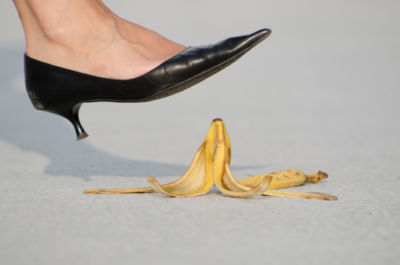


If you host a dinner party, are you running the risk that your house guests will sue you? Find out the circumstances under which house guests sue for injuries — and what you should do to make sure your visitors won't sue for injuries.
When you invite your friends over for dinner, you probably aren't thinking of your house as a danger zone. Uneven floors, strange steps, or even unfinished construction in your home may be part of your everyday life, so you know where to step and how to avoid the risks. But your house guests may not. If they are seriously injured, you could be looking at a premises liability lawsuit.
Premises liability, the kind of lawsuit that applies when someone is injured on your property, treats people differently depending on why they are there. Anyone you invite into your home for personal reasons is considered an licensee. They are entitled to warnings about hidden dangers within or around your house. A recent published Michigan Court of Appeals decision, Blackwell v Franchi, provides a good example.
On December 14, 2013, Dean and Debra Franchi invited several friends over for dinner including Susan Blackwell. The Franchi home had a step-down mudroom with an eight-inch drop off of the central hallway. When Blackwell went to put her purse down in the mudroom, she fell over the step and was seriously injured. She sued the Franchis as a licensee under premises liability.
The fact that someone could sue you doesn't mean you have to put up caution tape on every step. There is no duty to warn about open and obvious dangers. If a person could easily avoid the risky condition (in Blackwell, the step down) had it been seen, then the question becomes whether a reasonable person should have discovered the condition and understood the danger. The Blackwell court explains:
As a general rule a drop-off, like a step, does not in and of itself create a risk of harm since if seen a reasonable person can readily transverse it without incident. . . . Thus the question is whether [plaintiff] should have discovered the condition and realized its danger. [Internal quotes omitted]
For the Franchis, the issue of whether the step was open and obvious came down to lighting. Blackwell presented the testimony of two other guests, Endia Simmons and Ebony Whisenant, who said the mudroom was very dark and looked like the floor went straight across. They did not see the difference in height between the hallway and the mudroom. She also presented photographs that showed the condition of the mudroom and that the drop-off was not easily seen, even with the lights on. Based on that evidence, the Michigan Court of Appeals found that the issue of whether the step was an open and obvious hazard would have to go to the jury.
Darkness made the difference in Blackwell v Franchi. The Franchis argued that Blackwell could have just turned on the light, which would have illuminated the mudroom and revealed the step. But the court said it wasn't her duty to do so.
The open and obvious doctrine focuses on the condition of the premises and the hazard as they existed at the time the plaintiff encountered them. See Novotney [v Burger King Corp, 198 Mich App 470, 475; 499 NW2d 379 (1993)]. There is no additional requirement that the plaintiff take reasonable steps to improve the visibility of the alleged hazard. Defendant's argument that plaintiff should have discovered and turned on the light switch is not merely a statement that plaintiff should have looked where she was going but is a statement that she should have altered the premises' condition by turning on the lights.
In other words, as a licensee, Blackwell was not legally required to take extra steps to protect herself from hidden dangers in the Franchis' house. However, the court did note that she may have been comparatively negligent by failing to flip on the light. If the jury believed that to be true, it could reduce the amount the Franchis and their homeowners' insurance providers would have to pay, but it won't eliminate the liability all together.
No one wants to put their friends at risk. It isn't just the threat of a lawsuit that should encourage hosts to go the extra mile for the safety of their house guests. Take the time to look around your home for tripping hazards. If there is a room under construction, warn your guests before they enter, or close the door. Limit your guests' exposure to dangerous areas of your home by, for example, taking their coats and purses from them, rather than directing them to dark sections of your home. Blackwell teaches that something as simple as flipping on a light could save your loved ones injury and you the headache of a premises liability lawsuit.
At Sachs Waldman, we have extensive experience helping the victims of premises liability accidents recover damages from negligent property owners. We know what to do to make sure you are compensated for your injury, without relying on assumptions. Contact our Detroit personal injury law office at 1-800-638-6722.
© 2025 Michigan Injury Attorneys
View Our Disclaimer | Privacy Policy
Detroit Personal Injury & Car Accident Attorneys